Added Sugars: Which Ones to Avoid for BLW
In this episode we're talking about:
- WHAT & HOW to identify natural sugars versus added sugars?
- WHY do we need to avoid added sugars for our babies?
- HOW much sugar should a baby have?
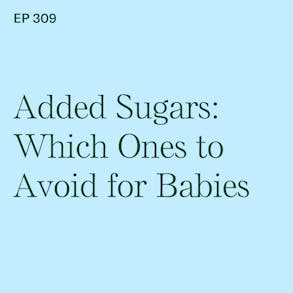
LISTEN TO THIS EPISODE
Episode Description
What are added sugars and why are they bad for babies? In this episode we’re looking at all of the many ways sugar may be hidden in your baby’s food - and how you can avoid added sugars when your baby is learning how to eat real food.
Links from this Episode
- Baby-Led Weaning with Katie Ferraro program with the 100 First Foods™ Daily Meal Plan, join here: https://babyledweaning.co/program
- Baby-Led Weaning for Beginners free online workshop with 100 First Foods™ list to all attendees, register here: https://babyledweaning.co/baby-led-weaning-for-beginners
Other Episode Related to This Topic:
- Episode 66 - Sugar and Why Your Baby Should Avoid it with Robert Lustig, MD, MSL https://blwpodcast.com/episodes/66
- Episode 250 - Misleading Marketing Claims on Baby Foods with Ada Lizbeth Garcia, PhD https://blwpodcast.com/episodes/250
- Episode 269 - Agave: Is it Safe to Offer Babies Agave in Place of Added Sugar? https://blwpodcast.com/episodes/269

Latest Episodes
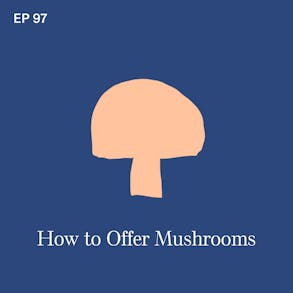
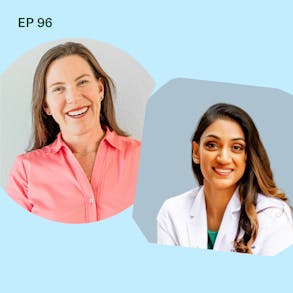
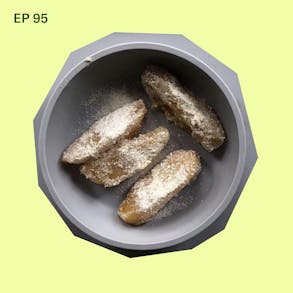
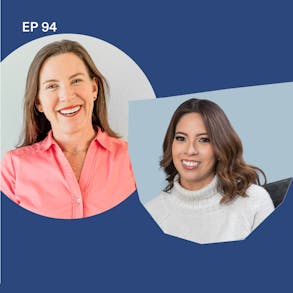

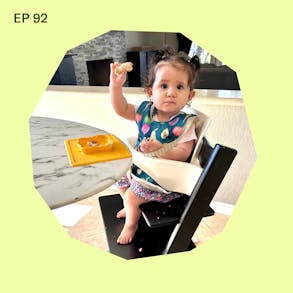
0 (1s):
Are you a meditation person? Like forever? I've wanted to incorporate meditation into my morning routine, but getting seven kids out the door for school and then trying to work during the hours they're at school, I was just never able to prioritize meditation. But I recently met another Katie, also a podcast host who runs the podcast called Meditation for Women. So I started listening to this podcast, holy heck, literally changed my life. Just this morning I was listening to her episode Meditation when you're in a bad mood and it instantly changed my mindset to get out, get grounded, tackle a busy day. You've got to check out Katie's Meditation for Women Podcasts. It's part of her women's meditation network. She's got a number of different podcasts too, like morning meditation and sleep meditation.
0 (42s):
So basically, if you're looking for an easy and actionable way to incorporate meditation in your life, I cannot recommend Katie and her Meditation for Women podcasts enough. You can find all of her shows online at women's meditation network.com or search meditation for women wherever you listen to your podcasts. And while the American Academy Pediatrics can recommend no added sugar for children age two and under till they're blue in the face, the reality is is manufacturers are still putting out commercial infant and baby food toddler products that have added sugar. I think the best example of this is baby food yogurt, right? It's regular yogurt that they actually add sugar to. You guys know that babies can eat real whole milk full fat yogurt as a way to safely introduce cow's milk protein.
0 (1m 23s):
We don't need to add the sugar to it, and yet manufacturers do and they sell it to you, making you think that for whatever reason it's better for your baby. Hey there. I'm Katie Ferraro, registered dietician, college nutrition professor and mom of seven specializing in baby-led weening here on the baby-led weening Made Easy podcast. I help you strip out all of the noise and nonsense about feeding, leaving you with the confidence and knowledge you need to give your baby a safe start to solid foods using baby-led weaning. Hi guys, welcome back. In today's episode, we're gonna be talking about added sugars and which ones do we want to avoid for weening.
0 (2m 4s):
Now, I know you probably know that babies don't eat added sugar, right? If you look at the American Academy of Pediatrics recommendations, no added sugar for babies until age two, okay? But like that's easier said than none cuz what exactly is an added sugar? And by the way, manufacturers employ a lot of really sneaky kind of duplicitous practices to make us think that the foods that we're eating don't have as much sugar as they really do. But it's so important for our babies to learn how to taste the flavors of the new foods that they're adding. Plus there are some serious health consequences to including too much added sugar in the pediatric diet. So we'll go through some of those, but I really want you to walk away feeling confident in your ability to avoid most if not all, of the added sugars for your baby.
0 (2m 45s):
So let's start out by what is the difference between natural and added sugars. So naturally occurring sugars not concerned about those ones. Okay? Some parents are like, my baby's never gonna have any sugar. Well, guess what? Spoiler alert, the primary carbohydrate in breast milk is lactose. Okay? It's a milk sugar. If it ends in O S E, that's a sugar and there's lots of perfectly fine naturally occurring sugars, you're gonna find them in foods like starchy foods and fruits and milks and that's fine. What we're concerned about is avoiding the added sugars, okay? These are caloric sweeteners that are added to foods or drinks during the processing and the preparation of them. Now we're not gonna spend a ton of time talking about artificial sweeteners, but those are like the non-nutritive sweeteners.
0 (3m 24s):
They don't have any calories. The super sweet taste. These are the things like asper tame and stevia, Splenda, like basically all the stuff that goes in diet soda and all the other weird diet foods. Weird if you're a baby, cuz we don't offer those diet foods to babies. We do want to avoid artificial sweeteners. They're not recommended for children under the age of 12 months just because there's really no research on the safety of sugar substitutes in infancy, right? It's not ethical to design a study whereby you like randomize two groups of infants and you're like, I'm gonna give this one like 500 ounces of diet Coke a day and see what happens to the baby. So we really just don't know when in doubt, leave it out. Now how do you identify which types of foods are added sugars? Okay? There are more than 50 different names for sugar, so there's really no need for you to memorize them.
0 (4m 8s):
Okay? When you're inspecting the sugar content of a food or a beverage item, the easiest place to start is to look at the nutrition fax panel and find the line that says Total sugars, sugars, or added sugars line. Kind of a weird place in the United States regarding enforcement of the new food label. So as a dietician, the thing I'm most excited about with the newest version of the Nutrition fax panel is that it requires manufacturers to disclose how many grams of the sugars in their product are added sugar, right? Cuz there's naturally occurring sugars, which are fine, it's the added sugars that we don't want. So if you can find the added sugars line on the nutrition fax panel, you are golden.
0 (4m 49s):
Hey, we're gonna take a quick break, but I'll be right back.
BetterHelp (4m 56s):
This episode is sponsored by Better Help. I know a lot of you are multitaskers cuz you're taking care of a baby. You're listening to the podcast, you're driving to work, baby, doing housework, life is busy, and trying to parent on top of doing life can be overwhelming. Working with a therapist can help get you closer to the best version of you. So when better help approach us to sponsor the podcast. At first, I wasn't totally sure because I know how important therapy is for people who have experienced major trauma, but I've also learned how therapy can help with things like setting boundaries, which I know I definitely needed help with. I mean, if it's not directly related to my family life or my work, I don't prioritize it. My better Help therapist Brooke recently gave me self-care homework, which you guys, I actually did not realize was something that I needed. And honestly, just having someone to talk to in a nonjudgmental space is so important. Better help offers convenient, flexible, affordable therapy totally online. You fill out a brief questionnaire and get matched with a licensed therapist. If you head to better help.com/weaning, you can get 10% off your first month. That's better help h e l p.com/weaning.
0 (6m 2s):
Why don't we want babies to have added sugars? Okay, from a health standpoint, let's start with dental caries cavities. Okay? Sugars are the dietary factor that are going to cause dental caries or cavities. So dental caries occur when bacteria in the mouth metabolize sugars, turn 'em into acids, which then demineralize the tissues of the teeth. Okay? So consuming high amounts of sugar, one of the biggest problems for children is that it can lead to dental caries. You might be like, oh, my baby doesn't have any teeth yet, but there's even some research to suggest that high sugar levels, even prior to tooth eruption can be deleterious to your infant's dental health down the road cavities form faster in baby teeth than in adult teeth as early as six months of age.
0 (6m 42s):
We see higher rates of cavities in babies who've been exposed to sugar. So we don't recommend juice for babies, okay? That's why you're not supposed to let kids snack on milk all day long because that milk the lactose, even though it's a naturally curing one could bathe and lather the baby's teeth, which can't increase the risk of dental caries. Another concern for sugar use from babies is it displaces other nutrients. Okay? Not only do sugars displace nutrient superior foods in the diet, like if your baby's full of like fruit juice, okay? Which even if it's a hundred percent, you know, real fruit juice, no juice for babies is recommended prior to 12 months of age. Your baby if 12, six months of age or older should be eating safe versions of fruit and not drinking it. Okay? So we know that like, let's use an example of like refined crackers, goldfish, okay, your baby's at daycare and they're pumping 'em full of goldfish every day here.
0 (7m 29s):
Parents complain about that all the time. That refined white flower food that also sometimes has added sugar in it, okay? Takes up valuable space in your baby's stomach such that they would not be hungry or have room to consume all of the other hundred helpful foods that you're trying to serve them. Okay? Of course we know that excess sugar consumption leads to higher rates of obesity and diabetes. We're not really that interested in talking about that when your infant is trying to learn how to eat. But we don't want to get in the habit of offering foods that have a lot of added sugars because of course humans have a preference for sweet tastes, right? We wanna take advantage of the flavor window where babies will like and accept a wide variety of foods and flavors and tastes and textures. But if we only offer them sweet foods, guess what?
0 (8m 10s):
They're only going to prefer sweet foods. What about hidden sugars in foods? Okay, the amount of sugar that's found in foods tends to be hidden, okay? So if products, for example, have like high amounts of sugar, the the list want each one individually on the nutrition label in order to make it look like sugar is farther down on the label. Okay? So manufacturers do all sorts of things to kind of play around with the ingredient list. Ingredients are listed in order by weight. So the higher up on the ingredient list in a food product sugar is means the greater percentage of it constitutes by weight Prior to having to disclose the grams of added sugar manuf, you could never even figure out how much sugar wasn't something cuz manufacturers would hide behind like, oh, it's a proprietary recipe. Like we don't want our competitors to steal it.
0 (8m 50s):
So we're not gonna divulge exactly how much sugar is in this to this day. Manufacturers still do a lot, lot of kind of manipulating. They're not always required to say if the total amount of sugars in the product includes the added sugars. So they kind of end up hiding them. And we had Dr. Lustig, one of the big sugar researchers he's had at the University of California, San Francisco. Dr. Lustig was on the podcast talking about sugars. Like if you're kind of interested in all of this like shady sugar stuff, he's got this amazing resource on the U C S F website. I know I use it in like all of my college nutrition classes as a way to learn about added sugars. And I'll link to his resources in the description, in the show notes for this episode. But if you go back to episode 68, that's where Dr. Lusted came on talking about sugar and why your baby should avoid it.
0 (9m 32s):
It's still one of our most downloaded episodes because Dr. Lustig is amazing, but also just the way that he describes what the manufacturers do to kind of trick us is kind of amazing. Hey, we're gonna take a quick break, but I'll be right back.
2 (9m 48s):
Are you enjoying this podcast? Then show your support by taking a short listener survey@surveymonkey.com slash r. As in the letter R slash AirWave, your favorite podcasters Wanna know about you, your interests, and what you think about this show. There's even a place at the end to tell them anything you want. Do you want more frequent episodes? Did you like a particular guest or topic? This is your chance to be heard. It's also a perfect way to support the podcast because your feedback will help them improve the show and find new advertisers that you actually wanna hear from. It only takes a few minutes. Plus, as our thank you, you can enter to win a $500 Amazon gift card.
2 (10m 31s):
So take the survey right now at surveymonkey.com/r/airwave. Again that surveymonkey.com/r/airwave.
0 (10m 49s):
So how much sugar should babies have? Well, the American Academy of Pediatrics maintains the stance that we do no added sugars for babies up until age two. It doesn't mean it too, you like flip to switch and just start like gorging your baby with sugar foods. But if we look at research, it's really unfortunate what a large percentage of calories in the typical child's diet is coming from sugar. Looking at a study talking about a World health organization study talking about improving the quality of foods for infants and children found that like 30% of the calories in the baby products that they evaluated came from sugars and then a third of the products had sugar or other sweetening agents. So basically like just because a company is making a commercial baby food doesn't mean it's sugar free.
0 (11m 32s):
They don't have to not put sugar in the baby's foods. And oftentimes they always oftentimes cite baby food yogurt. It's such a joke, right? Baby food yogurt is regular yogurt with added sugar. Like you wouldn't go to Starbucks and bring a plain yogurt and then open up two teaspoons or two packets of sugar and pour it into your yogurt and mix it up. But that's essentially what baby food yogurt is doing, okay? So please be aware that a lot of commercial infant foods do have added sugars in them. So the, if you're buying any infant food, maybe you're doing pouches, if you're in a pinch or you're on a trip or it's a, you know, convenience food, you've squeezed the pouch into the bowl, put it on the preloaded spoon, that's totally fine, but read the label because many of those foods actually will have added sugars.
0 (12m 12s):
Okay? A little bit of other like trickery that you see sometimes is like manufacturers are catching on that parents are starting to realize, oh my gosh, baby shouldn't have sugar. So products will also state things like contains no refined sugar or refined sugar free, but then they'll pump it full of all of these alternative sweeteners which are not indicated for children under 12 months either. Okay? So it might like look healthier and say like lower glycemic index or stuff that really does not pertain to infants. A lot of times we see this using like agave or coconut sugar or honey or maple syrup. We never offer honey to babies under age one because of the potential for botulism. And then I also did an episode on agave, that's back in episode 2 69. If you wanted to learn a little bit more, that's like kind of going into more depth about, you know, whether or not agave really is truly an added sugar.
0 (12m 56s):
And so while the recommendation is no added sugars for babies up until age too, I see sometimes parents ask like Katie, you know, do you have a recipe for like a sugar free smash cake for my baby's birthday? And I always say no, cuz in my family on our birthdays we eat real cakes. So that's not something that's of importance to me. I know a lot of other families choose to totally stay away from sugar. Is it the end of the world if your baby has sugar on their birthday? Like as a dietician and a mom of seven, my recommendation is no cake and moderation. Do you want your baby eating cake every day? Certainly not, but it's birthday. You gotta celebrate if you are inclined to do that. However, if we look at the national level data, there's a really interesting study about the amount of sugar in children participating in the WIC program. That's the special supplemental nutrition program for women, infant and children.
0 (13m 38s):
It's a U S D A nutrition assistance program in the United States. And about 25% of children were given added sugar at or before seven months of age. Okay? So the top added sugar foods eaten between one and 24 months of age are things like cereal, crackers, applesauce, yogurt sweetened beverages, syrup, preserves, cookies. I know these are not foods on the hundred first foods list that you're probably feeding your six to 12 month old. But be aware, especially in toddler and early childhood preschool age, that these tend to be the predominant foods in the child's diet. And we do need to continue to read our labels and offer the variety of foods because unfortunately, a lot of the typical Western or standard American diet does very heavily feature these foods that have a lot of added sugar.
0 (14m 22s):
And we do see it starting in infant children even you know, underage too. So the American Academy of Pediatrics can say no added sugar, but the data reflects that a lot of our kids still are getting the sugar. And what would be no added sugar foods that babies can eat? Well, many of you have my original a hundred first foods list. It contains a hundred different foods from five different food categories, fruits, vegetables, starchy foods, protein foods in the allergenic foods, all of which in their intact form have zero grams of of added sugar. And so through all of my content and my paid programs as well as my free workshops and resources, provide ways to help parents learn how to make these foods safely for their babies. Safe meaning in a format that is not going to increase choking risk in a format that a baby can safely self-feed starting at six months of age, but also in a way that's reflective of their nutrition needs, which do not include added sugars.
0 (15m 13s):
So my suggestion to you is if you can work your way through that a hundred first foods list, all of those foods have no added sugar in them. Some of them are naturally sweet, sometimes parents freak out. I don't want my baby to have anything sweet to eat. Spoiler alert, have you ever tasted breast milk or formula? It's sweet because the primary carbohydrate in there is lactose. If it ends in osse, that's a sugar, but that's a naturally occurring sugar and that's totally fine. Sweet taste is just one of the many tastes that babies can experience. And the thing I love about the diet diversity inherent in the hundred First Foods listed in the hundred first Foods program is that your baby's going to be exposed to a wide variety of flavors. Cuz babies, if you haven't noticed, are humans. Their little humans and humans have a preference for sweet foods, we know that. But if they're never offered anything except sweet foods, they never have the opportunity to know how to like and accept those different foods.
0 (15m 59s):
So the point of introducing five new foods a week is that we're getting a variety of nutrition, but also tastes and flavors and textures that will help our babies become independent eaters. It helps lower the risk of picky eating. And of course we know the research shows us that if we take advantage of that flavor window, this period that your baby is in, it's not that big of a window, but if you take advantage of it, your baby will like and accept a wide variety of foods and flavors and tastes and textures. So I'll link up all of the resources that I mentioned from this episode in the description below where you're listening to this episode, but also on the show notes, which you can find at b l w podcast.com/ 3 0 9. Thank you to our partners at AirWave Media. If you guys like podcasts that feature food and science and using your brain, AirWave Media has some great podcasts.
0 (16m 41s):
We're online@blwpodcast.com. Thanks so much for listening and I'll see you next time.
3 (16m 56s):
Hi, new friend. My name is Ali Kaza and I am the host of the Chart Topping podcast, the Purpose Show. Listen, if you are a mom and you want some energetic support in evolving, growing, becoming the next version of yourself, getting clutter out of your way, simplifying your entire life, your business, your home, everything, this is the show for you. So come over and listen with me.

The Program Baby-Led Weaning with Katie Ferraro
A step-by-step digital program for starting solid foods safely and navigating the original 100 FIRST FOODS™ meal plan with baby-led weaning.
 EXPERT-LED, PROVEN APPROACH TO EATING REAL FOOD
EXPERT-LED, PROVEN APPROACH TO EATING REAL FOOD CONCISE VIDEO TRAININGS TO MASTER BABY-LED WEANING
CONCISE VIDEO TRAININGS TO MASTER BABY-LED WEANING 100 FIRST FOODS DAILY MEAL PLAN WITH FOOD PREP VIDEOS
100 FIRST FOODS DAILY MEAL PLAN WITH FOOD PREP VIDEOS
Baby-Led Weaning for Beginners Free Workshop
Is your baby ready to start solid foods, but you’re not sure where to start? Get ready to give your baby a solid foundation to a lifetime of loving real food…even if you’re feeling overwhelmed or confused about this next stage of infant feeding.
Get baby-led weaning recipes and tips delivered to your email inbox.

